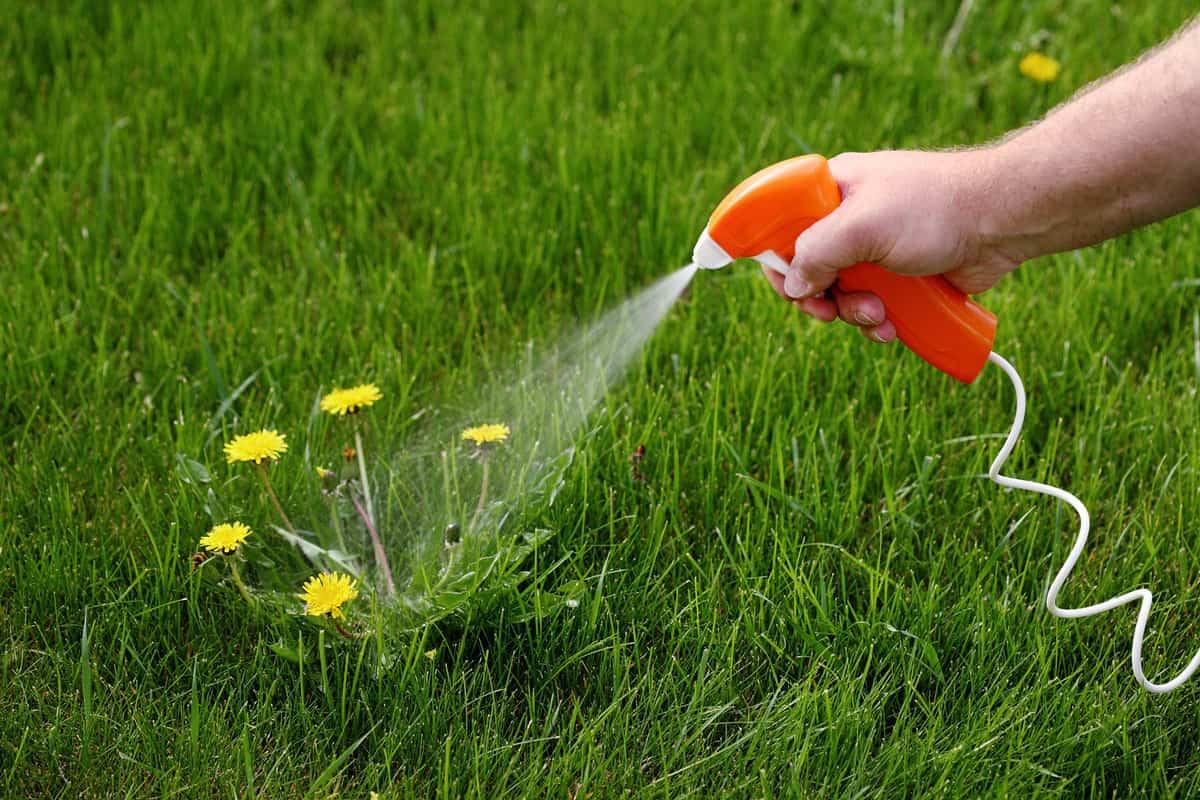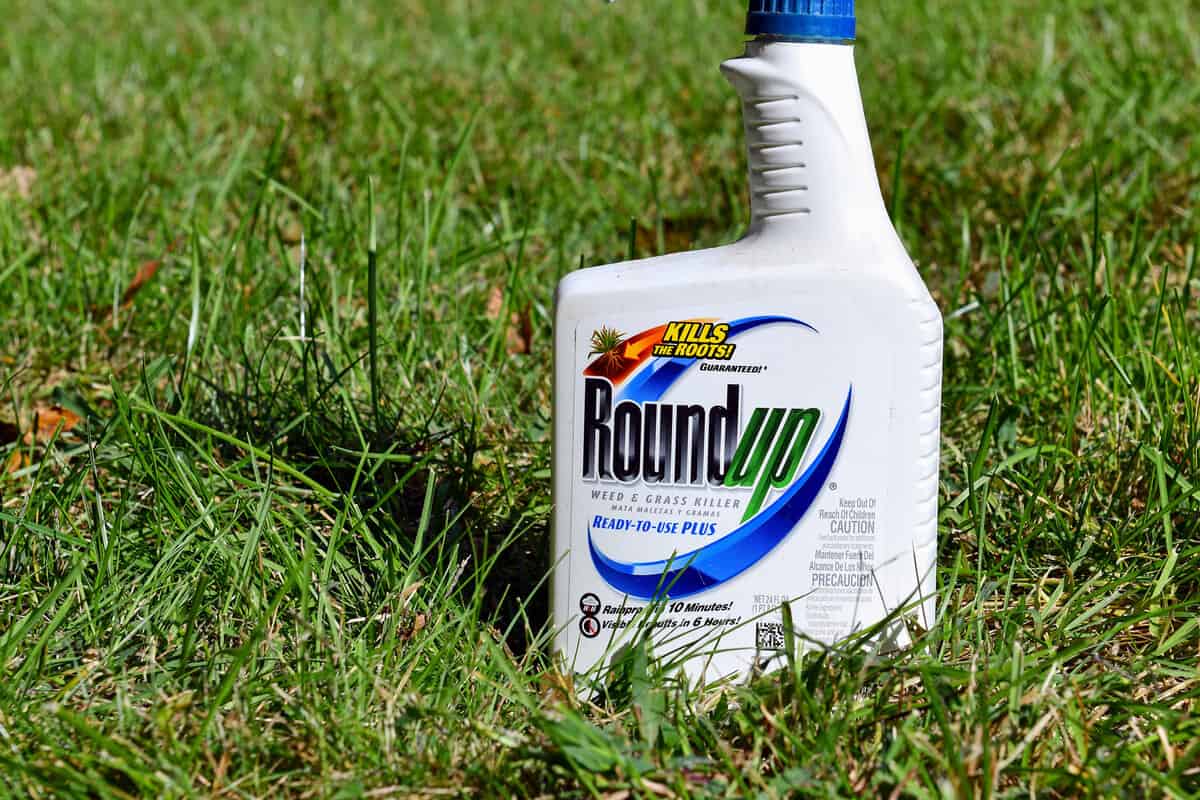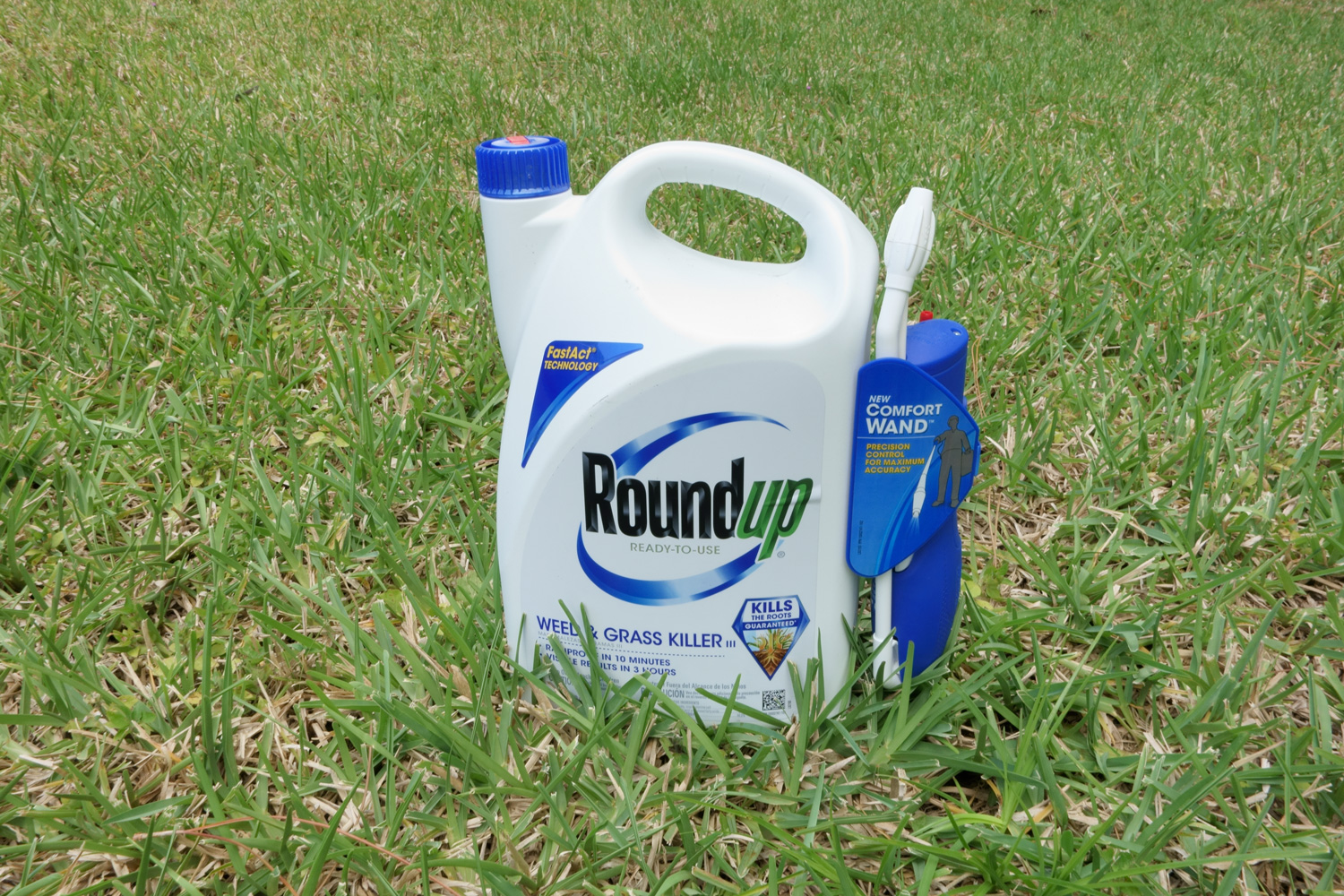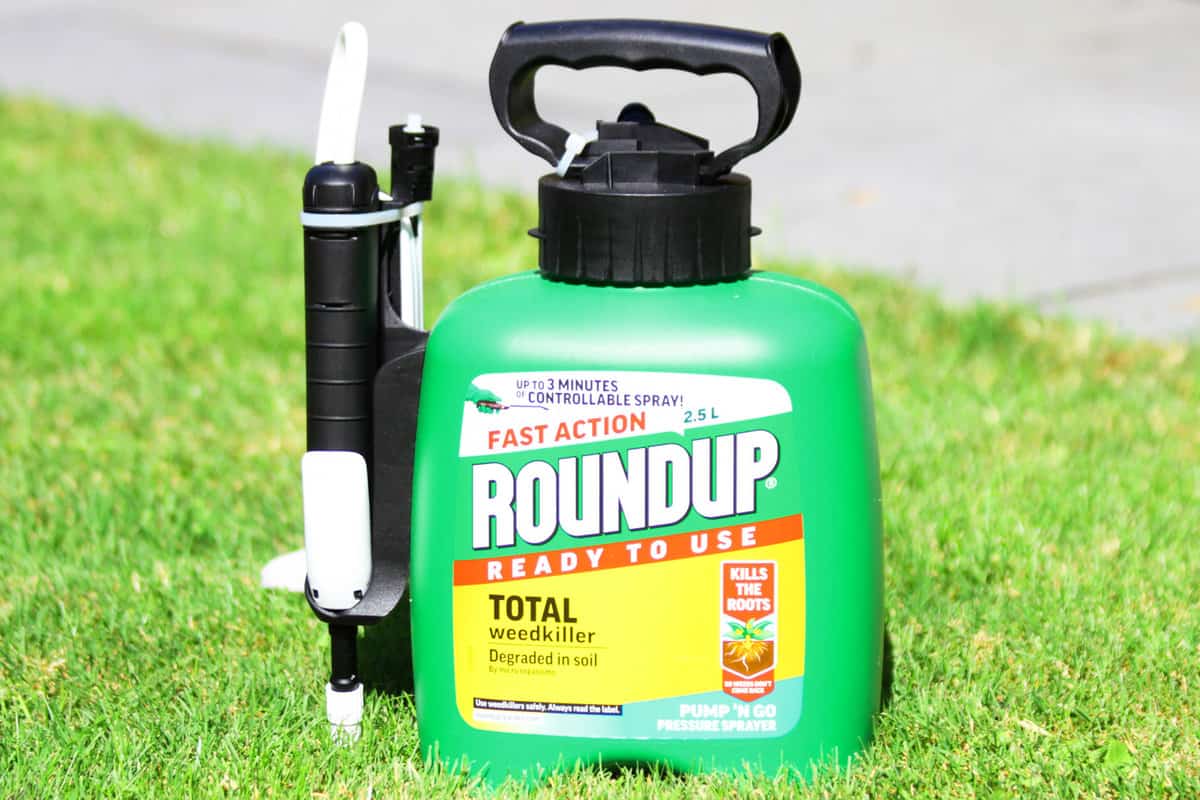Figuring out how to kill the weeds in your garden can sometimes be challenging. Do you want to try using Roundup for your pesky weed problem but don't know how far it spreads? Is Roundup effective for killing areas of weeds or just for a single plant?
We will answer these questions and many others throughout this article. Let's begin!
You can typically expect Roundup to spread 1-2 inches near the area you sprayed it. One of the benefits of using this product is that Roundup doesn't splatter or spray over large areas with each application: it targets a specific plant that you aim it at.
Therefore, if you follow the herbicide's instructions and are careful with how much you spray into your landscape, there shouldn't be an issue for nearby plants.
As we start this article, we will cover all things Roundup and discuss how far it spreads. Whether you have weeds growing throughout your garden, need to switch herbicides, or have additional questions, we're here to help. With that said, let's dive right into this topic below!
![A container of Roundup Weed and Grass Killer on a grass lawn. Roundup is a popular gardening and landscaping product that is manufactured by the Scotts Company LLC., How Far Does Roundup Spread [Can It Kill Nearby Plants]](https://gardentabs.com/wp-content/uploads/2022/11/A-container-of-Roundup-Weed-and-Grass-Killer-on-a-grass-lawn.-Roundup-is-a-popular-gardening-and-landscaping-product-t.png)
How Far Will Roundup Spread In My Yard?
Whenever you spray Roundup, it shouldn't have a spread of more than one or two inches. In general, this herbicide targets the exact spot you spray it: not an entire plot of the landscape.
This may sound like a drawback, but it's the opposite. Typically, herbicides can be difficult to control, often causing healthy, non-weeds to get sprayed and die.

Luckily, Roundup considered this, and each product has a spraying arm that won't douse your garden in chemicals. Since Roundup targets plants at a cellular level, you don't want to get crazy while spraying it.
According to lawn experts, Roundup should give you a precise line of herbicide treatment, which will be 1-2 inches on either side of the application.
So, keep this in mind while applying Roundup to prevent other non-weeds from getting killed.
Does Roundup Spread Underground?
Yes. When you use Roundup, the soil will also absorb it. A huge part of why Roundup is so effective is because it penetrates the surrounding ground near your weed.
From there, the chemicals in your products stun and kill the weed from the roots, leaves, and stems: eventually eliminating the problem.
However, this potency can become an issue for future plants you want to grow in that same area. It's typical for the soil where you apply Roundup to become infertile for upwards of six months post-treatment.
Therefore, that can become a somewhat long-term issue for your gardening.
According to the National Pesticide Information Center, glyphosate (the chemical in Roundup) can persist in soil for up to 6 months, depending on the climate and soil.
On top of that, this chemical binds tightly to soil, meaning it can be hard to get rid of later. However, in a study by the NPIC, half the glyphosate in dead leaves broke down in 8 or 9 days, which means it can go away on its own.
Again, this all depends on the climate, ground conditions, and amount of herbicide you use.
Can Roundup Be Absorbed Through Roots?
Yes, Roundup will spread to your plant's roots if you spray them. Generally, the chemicals in Roundup work from two places: the leaves and the roots of a weed.
As we said, Roundup doesn't have a large spread when you spray it. That can become a lifesaver for plants within your eye's distance of the weed(s) you are targetting.
The National Library of Medicine claims that many crop species show signs of glyphosate absorption. A few crop species that are especially sensitive to these chemicals absorbing into their roots include beets, barley, cotton, maize, and rapeseed.
In addition, roots are the main intercept of glyphosate in field runoff, so if you have a vegetable garden: be careful where and how much/often you apply Roundup.
As a general rule, it's better to keep chemicals away from plants you want to harvest. Although Roundup won't spread far, it can become an issue if you don't follow the instructions.
Will Roundup Kill Surrounding Plants?
Unfortunately, it is possible to have Roundup also kill/negatively affect nearby plants. Typically, if you spray Roundup within a few inches of a healthy, non-weed species, it will begin to stunt and kill it.
One of the main problems gardeners run into when applying herbicides is nearby plant death. As we mentioned earlier, Roundup spreads about 1-2 inches from the line you spray it.
So, let's say you have a weed six inches from a rose bush you adore.
If you spray the Roundup directly on the weed, not all around its soil: the rose bush should remain unharmed. However, if you spray around the base and nearby soil of the weed, this can lead to runoff and eventual death for your flowering shrub.
So, try to be precise and cautious, and always use less product when it comes to an herbicide.
SoilsAlive claims that you want to be especially careful when using Roundup near all lawn grasses, perennials, annuals, shrubs, and vines.
When Is The Best Time To Apply Roundup?

For those wanting to apply Roundup: the timeline is essential. In general, you want to wait to apply herbicide until the spring season. This is because Roundup needs to be used during calm, moderate weather.
According to the brand's official website, Roundup must be sprayed during low winds and when the weather doesn't call for rain/snow within 24 hours.
Specifically, if you can wait to apply Roundup in spring and early summer when the temperature is between 45-90 degrees, it will target and kill weeds the best.
On top of that, try focusing on your garden's climate and ground conditions. As we covered, Roundup does seep into your weed's leaves and roots, so you want to wait until they are actively growing.
Furthermore, if the soil is too cold, your product may have a harder time penetrating it.
So, the warmer and more mild the wind, weather, and soil: the better your herbicide will work!
What Time Of Day Should I Apply Roundup?
Now that you know you should apply Roundup during the spring/early summer, what time of day is best? Although this might surprise some, the best time to spray Roundup is through the midday and evening hours.
One of the interesting things about herbicides is how the time of day you spray them can affect their potency.
For example, it might seem like a smart idea to spray in the early morning, although this can result in lackluster weed targeting/killing.
In contrast, your product will work better in the warmer parts of the day, followed by the cooler evening hours. On top of that, Roundup doesn't respond well to weather changes and wind speeds picking up.
Therefore, spraying it in the early morning before you can get a feel for the day's wind and sun exposure is taking a risk. Even if the weather forecast calls for clear, blue skies, that may change from early morning to the later afternoon or evening.
Furthermore, you can spray your Roundup leading into the night, allowing it to seep into the leaves of your pesky weed. The more residue that makes its way into your plants' system: the better it will work.
How Long Before Roundup Kills Weeds?

You can usually expect some level of a result after a few hours of spraying Roundup. According to the brand, many Roundup products show visible signs of weed killing after 2-3 hours of applying.
That said, not every weed will die so fast. Furthermore, Roundup also claims its 'Roundup® Max Control 365' product line takes a bit longer (12 or so hours), so this can depend on the formula.
However, the trade-off with that longer kill time is that the 365 line keeps weeds dead and away for up to one year, which means less frequent sprays on your end.
It's also worth mentioning that if a product takes longer to kill a weed: it likely will keep it dead for an extended period. So, just because you don't see the weed dying instantly doesn't mean your product isn't working.
We recommend spraying your Roundup directly on the weed, letting it seep in for a couple of hours, and then waiting until tomorrow/the next day to assess whether it's effectively working.
What Weeds Does Roundup Target?

When it comes to "which" weeds Roundup kills, you can expect this product line to work on all the major varieties. Since Roundup utilizes the ingredient glyphosate in its products, you can expect most, if not all, weeds to take a hit when you spray them with this.
An interesting feature of glyphosate is that it works by blocking an enzyme essential for plant growth. That essentially puts your weeds in a state of stunted growth and development, leading to a quick death.
You can also expect glyphosate to target broadleaf weeds and grasses, which include dandelion, crabgrass, and nutsedge, to name some of the more common ones.
Again, there's a reason that Roundup is so popular/widely used.
To Wrap Up
Whether you have a persistent set of weeds in your garden or want to try Roundup for the first time, it's essential to understand its formula and spread.
We found that Roundup typically spreads 1-2 inches in either direction you spray it. Although this might seem minimal, if you have plants nearby, too much Roundup in the soil can become an issue.
As we said, Roundup seeps into the ground, targeting the roots of a weed. This can also lead to nearby plant loss if you aren't precise with your application: so keep this in mind while using Roundup.
Made it this far? Check out these helpful related garden articles below!
How To Use A Roundup Sprayer [And Troubleshooting If Not Working]
